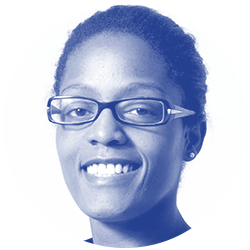
ABOUT
HOME is a three-year project funded by the Portuguese Foundation for Science and Technology that investigates the connections between the members of parliament (MPs) and their constituencies. It charts MPs’ behaviour in the district and in the parliament, over four central research questions:
- How do MPs behave in their home constituency?
- How do MPs use the parliamentary floor to cater to districts’ interests?
- How are recruitment and post-assignment in parliament used to connect with constituencies?
- Which factors explain differences in constituency-focus?
These questions are investigated in the context of a Small-N comparative study including Ghana, Namibia and South Africa. These are three of the most established democracies in Africa, with remarkable records of free and fair elections and highly institutionalized party systems. However, they display important institutional and contextual differences that make the empirical analysis of constituency service relevant. First, differentials in the electoral institutions, systems of govern and parliamentary structures allow us to leverage institutional explanations for cross-country variation in constituency service. Second, a closer look at each case study helps clarify the influence of districts’ characteristics, party organizations and individual-level factors on constituency service.
To answer the questions raised, the project applies an ambitious mixed methods research strategy that combines different types of quantitative (surveys, MPs’ biographies, parliamentary activity) and qualitative (documental research, interviews) types of data.
PEOPLE
Coordination
Research team
Advisory board
Publications
Articles
- Sanches, E. R., & Espírito-Santo, A. (2025). Who Gets to Speak? How Institutions and Political Careers Shape Gender Bias in South Africa’s Parliamentary Debates. Politics & Gender. https://doi.org/10.1017/S1743923X25100494
- Sanches, E. R., Osei, A., Seabo, B., & Pitcher, M. A. (2024). Introduction: Are Parliamentary Elites in Africa also Power Elites? Researching the Origins and Consequences of Varying Elite Configurations. Journal of Southern African Studies, 50(4), 521–534. https://doi.org/10.1080/03057070.2024.2465194
- Sanches, E.R., Kartalis, Y., & Siachiwena, H. (2024). Explaining Party Switching in an Institutionalised Party System: The Case of South Africa. Journal of Southern African Studies, 50(4), 665–684. https://doi.org/10.1080/03057070.2024.2415183
- Sá, A. L., & Kilumbo, O. (2024). UNITA’s Post-War Parliamentary Elite: From a Wartime Defeat to a Nationwide Party in Angola. Journal of Southern African Studies, 50(4), 555–574. https://doi.org/10.1080/03057070.2024.2403256
- Conduto, J., Dulani, B., & Fisher, C. (2024). Elite Party Formation amid Fragmentation: The Case of Joyce Banda’s People’s Party in Malawi. Journal of Southern African Studies, 50(4), 535–553. https://doi.org/10.1080/03057070.2024.2455323
- Espírito-Santo, A., Sanches, E.R., & Kartalis, Y. (2024).Gender, Intraparty Competition, and the Substantive Focus of Parliamentary Questions in South Africa. Politics and Governance, 12, 1-18 https://www.cogitatiopress.com/politicsandgovernance/article/view/8326/3855
- Sanches, E. R., Conduto, J., Marinha, A., & Espírito-Santo, A. (2024). What do we mean when we talk about constituency service? A scoping literature review of four decades of research. Political Research Exchange, 6(1). https://doi.org/10.1080/2474736X.2024.2377652
- Sanches, E. R. & Kartalis, Y.(2024). Constituency focus in party-centered systems: how individual, party, and district-level factors shape parliamentary questions in South Africa. Legislative Studies Quarterly, 49(4), 773-799. https://onlinelibrary.wiley.com/doi/10.1111/lsq.12453
Book chapters
- Sanches, E.R. (Forthcoming). Electoral Systems, Party Systems and Political Representation in Africa. In A. Freire, E.H. Önnudóttir, A. Pedrazzani, & H. Schmitt (eds.), Elgar Encyclopedia of Political Representation. Cheltenham: Edward Elgar Publishing Ltd.
- Marinha, A.R, Conduto, J. & Gaio J. (Forthcoming). Youth Representation in South Africa: From University Walls to Parliamentary Hall, In K. R. Kurz and B. Anlar (eds.), A global perspective on youth political representation. London: Palgrave Macmillan.
- Sanches, E. R. & Dias, António (2021). Ghana: The Politics of Legislative Debates in a Hybrid Presidential Regime. In H. Bäck, M. Debus, & J. M. Fernandes (eds.), The Politics of Legislative Debate Around the World. Oxford: Oxford University Press, pp. 399-419. https://doi.org/10.1093/oso/9780198849063.003.0020.
Reports/Briefs
DATA

MPs Biographic
Datasets
Country-level datasets containing parliamentary speeches and questions, and their constituency focus over time. The data will include at least two of the case studies (South Africa and Ghana), for over twenty years
To download click here

Parliamentary
Activity Datasets
Country-level datasets containing parliamentary speeches and questions, and their constituency focus over time. The data will include at least two of the case studies (South Africa and Ghana), for over twenty years (contact us for more information).
To download click here

Elite
Surveys
Online surveys will be conducted with legislators in Ghana, Namibia and South Africa, to understand how they allocate their time, what exactly do they do in their home constituency, and whether constituency service matters for their political careers and, most importantly, to the citizens (contact us for more information).

















